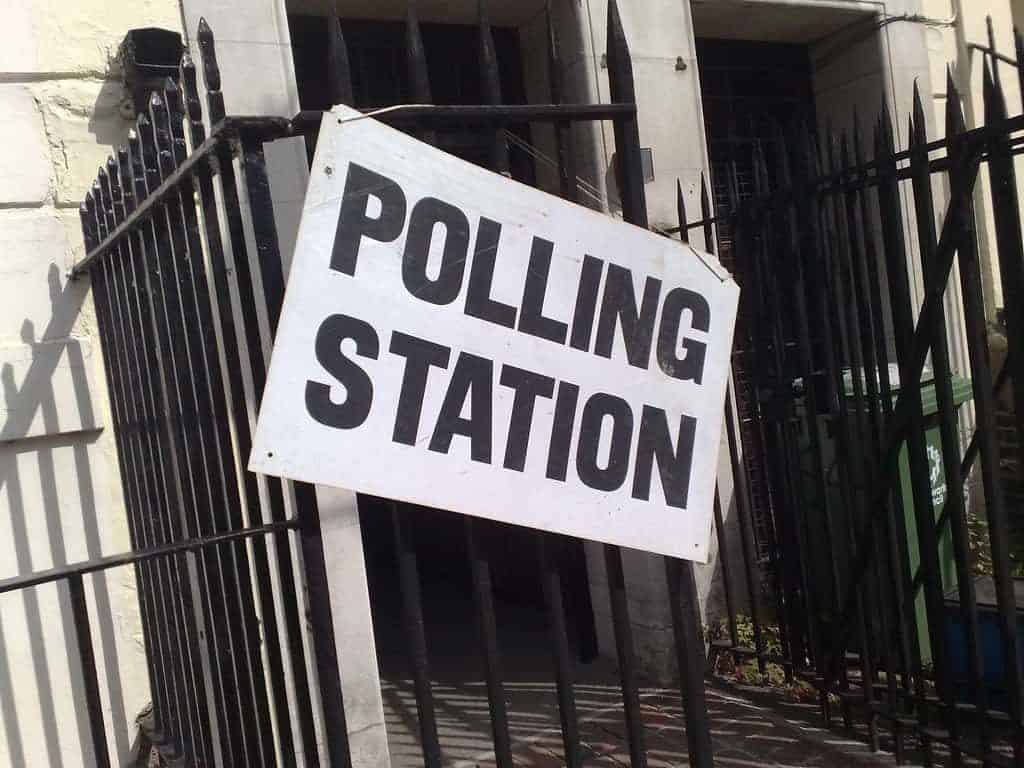The First-Past-The-Post system makes the House of Commons outrageously unrepresentative. Most votes are wasted since they are not reflected in the outcome. The Commons is dominated by party loyalists with their group-think. Citizens are constrained to engage in tactical voting – in other words, to choose the least bad option or vote to keep a specific candidate out.
As our Radix colleague Joe Zammit-Lucia well knows, there is an alternative. Now, in 2019 and quite unlike 1918, it is technically possible, in principle, for each citizen to find and vote for a candidate they substantially support and to be assured that their vote will count one way or another. This is how:
- Require all candidates to obtain for election a certain number of votes (to be determined by the size of the electorate, traditional turnout and the target number of seats).
- Install electronic voting at polling stations.
- The voter is provided on a first screen with the choice of constituency candidates they would currently see on the paper ballot. Voters discontent with this selection would have the option of moving to a second screen which would show all candidates in a larger area, say their county or a region.
- With a familiar search function (as on every computer and smartphone) people could home in on their pre-chosen candidate quickly. In principle, a third screen might contain all candidates country-wide, but that would likely be a step too far for present sensibilities.
There would be a process where candidates falling far short of the threshold would redistribute their contingents of votes to candidates closer to the threshold. Similarly, very popular candidates would redistribute their surplus votes. This way, no vote need go wasted while voters would have a much wider choice of candidate and so no longer vote for the least bad option. This would diminish the power of parties while still according them an important role.
Such a system of “transferable power of political attorney” would make parliament vastly more representative and reward outstanding candidates with the loyalty of supporters outside their narrow constituency while retaining a geographical anchor (since voters are “nudged” to make a local choice).
In the present situation, this would reshuffle the cards radically. It would restore legitimacy to the electoral system. It would encourage a different quality of parliamentarian. It would decimate the power especially of the two big parties and end the near-dictatorial stranglehold of the party leaders.
Otherwise, yet another election, with the many rotten boroughs (safe constituencies), runs the risk of producing much the same impasse again. A referendum became necessary and defensible, despite the notorious defects of such plebiscites, not least because of the failures of the parties over decades.
To return to David Boyle’s half-baked proposal, my system would allow, say, a Conservative voter in a constituency with a Leave Tory standing to go to the second screen and doubtless find there a Remain Tory. And similarly for those of other political persuasions.
Waiving the deposit (as David suggested) is a red herring. This is a only minor outlay in conducting a campaign. As for the “coupon” tactic of government-sponsored candidates, surely the very last thing we need is to hand even more power to a dictatorial government everyone acknowledges to be out of its depth.
For more see http://www.fuzzydemocracy.eu.
Welcome to the Radix blog in 2019! Make a new year’s resolution to help us build the intellectual foundations for a new radical politics. Sign up to get email notifications about anything new in this blog.






Sadly, if you think electronic voting is part of the answer, you don’t understand the problem. And I say that as a Qualified Computer Auditor.
A definitive 7500-word paper which will be available shortly deals with all (I believe) of the obvious objections. In order to ensure transparency and auditability I propose there that there be a printer in the voting booth. The printout is inspected by the voter, folded and placed in the ballot box. It would contain the name of the chosen candidate and a bar code. For practical purposes (e.g. rapidity of count) the count would be by scanning the paper ballots, using the electronic record as a control. The paper ballots would be preserved to provide an audit trail.
Do you, David Evans, as a qualified computer auditor, see any problem with this? Especially any problem comparable to stuffed ballot boxes and the like in many jurisdictions? Any problems you still see would have to be greater than the failures of representation generated by FPTP. “Fuzzy” means not perfect, but as good as it gets. Ultimately, nothing is watertight. For the record, I have spent 20 odd years translating German audit reports, mostly for finance rather than computers, and am not impressed, but am fairly familiar with audit sampling and other techniques.
I agree that FPTP elections distort the wishes of the electorate. It was designed for an earlier period of our history when very few men and no women were allowed to vote, and it was designed to keep the rich and the privileged in power. Sadly, the conservatives in Parliament have consistently refused to reform the system which keeps them in power. The argument for a fundamental reform of the UK electoral system was won many years ago, but reform has been prevented by those who benefit from the current system.
I hope I am not the only person to distrust the use of technology in elections. Given the ease with which elections have been manipulated in recent years by the use and abuse of electronic voting systems by the powers that be in many different polities, as a former active politician, I prefer a system which is easy to use, to understand, and to supervise.
A far simpler system is the introduction of proportional representation using the single transferable vote (STV) in multi-member constituencies, with the counting of the votes being scrutinised by members of the public to ensure transparency. It may not be as quick as electronic voting, but it is far cheaper, and infinitely more reliable than machinery. And it produces a result which more accurately reflects the way people voted.
While STV is ideal in some respects (better proportionality than FPTP and maintenance of the constituency link), it has a disadvantage in rural areas where the constituency sizes can become very large, particularly in Scotland. Even Cornwall as a single constituency would be too large IMO. I don’t think that we should be too quick to reject AMS, which allows us to retain reasonable-sized constituencies together with a top-up to improve proportionality. If we followed Roy Jenkins’ Alternative Vote+ approach (https://www.electoral-reform.org.uk/voting-systems/types-of-voting-system/alternative-vote-plus/) but with a larger top-up (40% of seats rather than the 15-20% that Jenkins proposed), I think that we could get sufficient proportionality (the London Assembly has 14 constituency and 11 top-up seats, while Holyrood has 73 constituency and 56 top-up seats). Add allowing party members/registered supporters to choose the list order (a.k.a. primaries) and you remove the need for an open list. Paul Gregory’s ‘fuzzy democracy’ is just far too complicated and demands too much of the individual voter who still has limited time in the polling booth to make his or her choice.
Laurence Cox is still thinking within the box, trying to square the circle, and keep the world safely in the 20th century. Just read his acronym-rich contribution, and do spend a few minutes puzzling over or googling “AMS”. I love this sentence in particular: “Paul Gregory’s ‘fuzzy democracy’ is just far too complicated and demands too much of the individual voter who still has limited time in the polling booth to make his or her choice.”
We seem to have opposing intuitions about the meaning of “complicated” and different opinions of the capabilities of many voters. Fuzzy D. requires citizens to make a note of the best candidate they can find, go to the polling station and vote. End of story. What is complicated about that?
Notwithstanding his low estimate of the capabilities of the individual voter, Laurence Cox expects them to find TWO appropriate candidates from a limited choice proposed by shadowy party preselection processes.
By the way: Where does this time restriction come from? And surely, anyone who only begins to ponder their choice in the polling booth should not be voting anyway.
Ageing or other citizens unfamiliar with screens can still demand a paper ballot with the constituency candidates as now. They simply forgo the possibility of choosing, say, a Remain Tory/Socialist elsewhere in Cornwall instead of the Leave one they are saddled with (or visa versa).
Definitive presentations of Fuzzy Democracy are now online at my website. Thank you, Laurence Cox, for the link to Electoral Reform UK.
With regard to your suspicion of electronic voting systems, please see my reply to the first comment. Since a paper trail would be available, there is no reason to suppose that what is proposed would be more open to abuse than current systems. The mechanism described provides for not one, but two checks if necessary. It does allow scrutiny of votes by members of the public to ensure transparency. Expense does not enter into it when one considers the outrageous misspending that unrepresentative parliaments approve. Democracy, on my understanding, is the default rule of aggregate reason and judgement. It does not come cheap, but is ultimately cheaper than all other forms of governance.
The greatest present danger, incidentally, surely lies elsewhere, namely in the sudden feasibility of vote buying or intimidation: voters could be asked to use their mobile phones to photograph the marked ballot as proof of compliance.
As for Proportional Representation, this has its own grave defects. PR assumes the dominance of parties. I contend that powerful parties are one of the main causes of our malaise, in the UK, the USA, Germany and elsewhere. Especially under PR, the hegemony of parties leads to horse trading and groupthink. But worst of all, parties tend to encourage populism, i.e. the simplification and distortion of issues in order to garner as many votes as possible. Parties pander. Instead of lower thresholds for proportional representation I would argue, therefore, for upper thresholds, such that no party can obtain more than, say, five percent of the turnout. That is, if you must have PR and party hegemony, rather than straight representation as in Fuzzy Democracy.
STV (single transferable vote) is one of the systems of aggregation of votes in order to compensate for the fact that votes for less popular candidates are systematically ignored. It is, I contend, a half-way house from the twentieth century.
In Fuzzy Democracy you always vote for the best you can find. You give a power of attorney to the candidate you vote for. No (or negligible) votes are wasted, even if your candidate loses badly. Parties become more like think tanks, or ad-hoc alliances of the like-minded.
PR and STV are not less complicated than Fuzzy Democracy. On the contrary. But they conceal part of the complication in internal party intrigue during the preselection process.
Fuzzy Democracy is easy to use, understand and supervise. It is just unfamiliar. It is genuinely original (although, granted, everything has antecedents). New and extensive material on my website should answer obvious objections.
It is always difficult to change paradigms. I pondered these issues for many years and when I made the breakthrough several years ago kicked myself for being so blind to the solution staring me in the face. As a former politician, you might see that Fuzzy Democracy is the helper you would have needed since it opens up support avenues that were formerly closed due to party intrigue.
I am curious, although this is slightly ad hominem, whether either you, Peter Arnold, or David Evans, with your shared hostility to technology in elections, use internet banking?